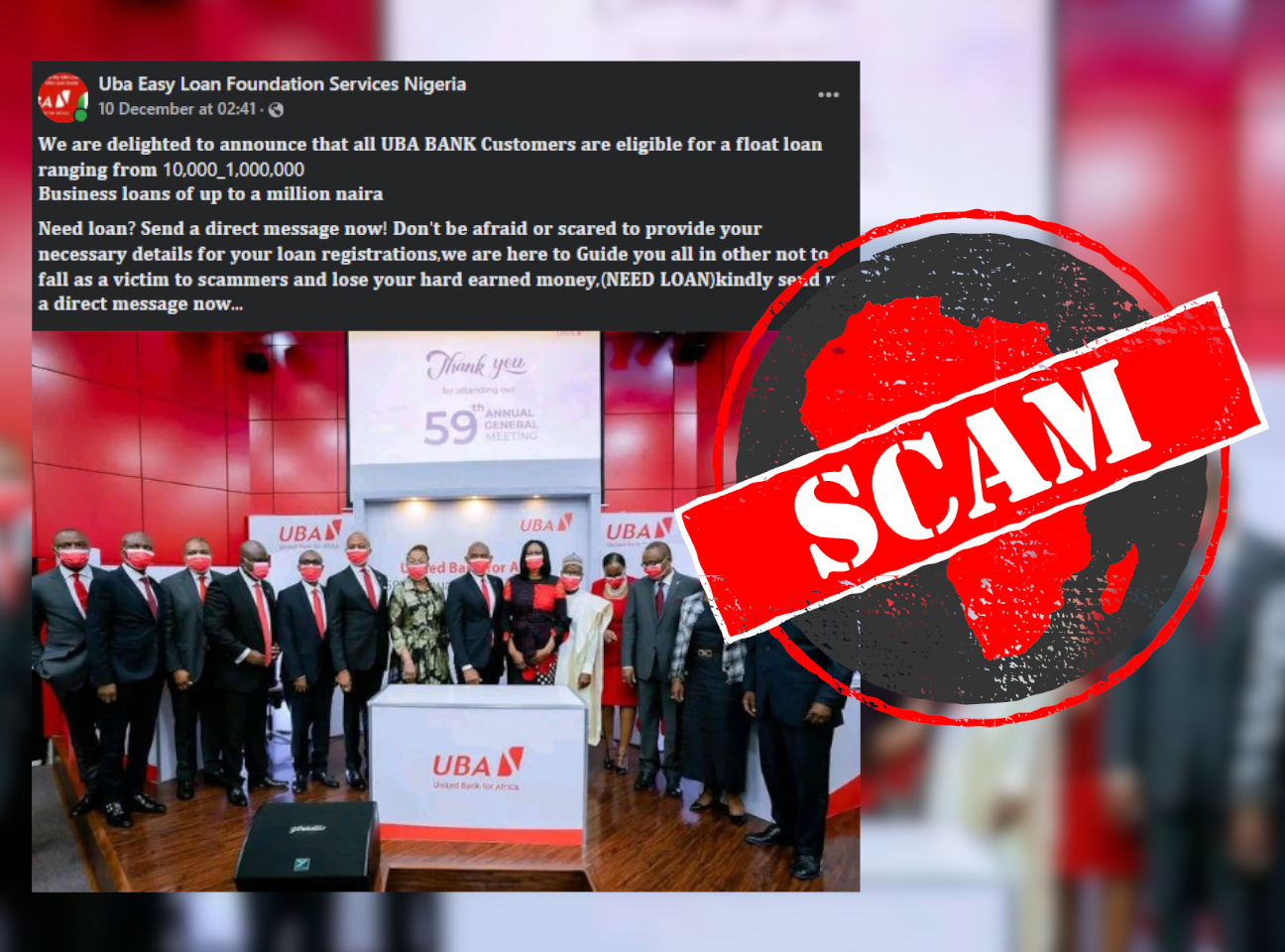IN SHORT: Multiple Facebook accounts are offering Nigerian users easy loans from the United Bank for Africa. But the accounts don’t belong to UBA and are out to steal your sensitive personal information.
The accounts Uba Easy Loan Foundation Services Nigeria, Uba Easy Loan Foundation Services, Uba Easy loan Foundation Services Nigeria, Uba Loan and Uba Easy Loan Foundation Services Nigeria are all offering loans to Nigerians on Facebook.
The accounts are using the name and logo of the United Bank for Africa (UBA). UBA is a financial institution that operates in Africa with a presence in several countries. UBA provides a range of banking services, including retail banking, corporate banking, investment banking, and asset management.
One such post offering loans on 9 December 2023 reads: “We are delighted to announce that all UBA BANK Customers are eligible for a float loan ranging from 10,000_1,000,000 … Business loans of up to a million naira …”
It urges its more than 2,000 followers to “send a direct message now”.
Similar posts can be found here, here, here, here, here, here, here, here, here, here, here, here, here, here, here, here, here, here, here and here.
But are the loan offers real? We checked.

Scam alert!
One of the signs that these offers are fabricated is that the Facebook pages pushing the loan offers were created in 2023. The number of followers on these pages is low compared to the age of the company and the size of its customer base in Nigeria and across Africa.
The official UBA page on Facebook, UBA Group, has over 3.8 million followers. The page is verified by Meta and was created in 2009.
Africa Check sent a message to request a loan from one of the suspicious pages, Uba Easy Loan Foundation Services Nigeria. The account asked how long we’d been using UBA and asked us to send our account number and phone number. We sent false numbers.
The account then asked for the last four digits of our bank card, as well as the PIN and the expiry date of the card. These details would enable the account to charge the card, and should never be given to strangers.
The account seemed to realise we had sent false details, and then sent us what appeared to be the identity card of a UBA member of staff, presumably to win our trust and convince us to send the correct details.
UBA has said on X (formerly Twitter) that the company would never ask for a user’s PIN, card details, password, or other sensitive details.
To take out a loan with UBA, visit the bank’s website. There are different requirements and processes to apply for each type of loan.
In June 2023, Africa Check debunked a similar claim where a Facebook page was claiming to be UBA and offering instant loan facilities. Like these pages, we found it to be a scam.
Republish our content for free
For publishers: what to do if your post is rated false
A fact-checker has rated your Facebook or Instagram post as “false”, “altered”, “partly false” or “missing context”. This could have serious consequences. What do you do?
Click on our guide for the steps you should follow.
Publishers guideAfrica Check teams up with Facebook
Africa Check is a partner in Meta's third-party fact-checking programme to help stop the spread of false information on social media.
The content we rate as “false” will be downgraded on Facebook and Instagram. This means fewer people will see it.
You can also help identify false information on Facebook. This guide explains how.




Add new comment